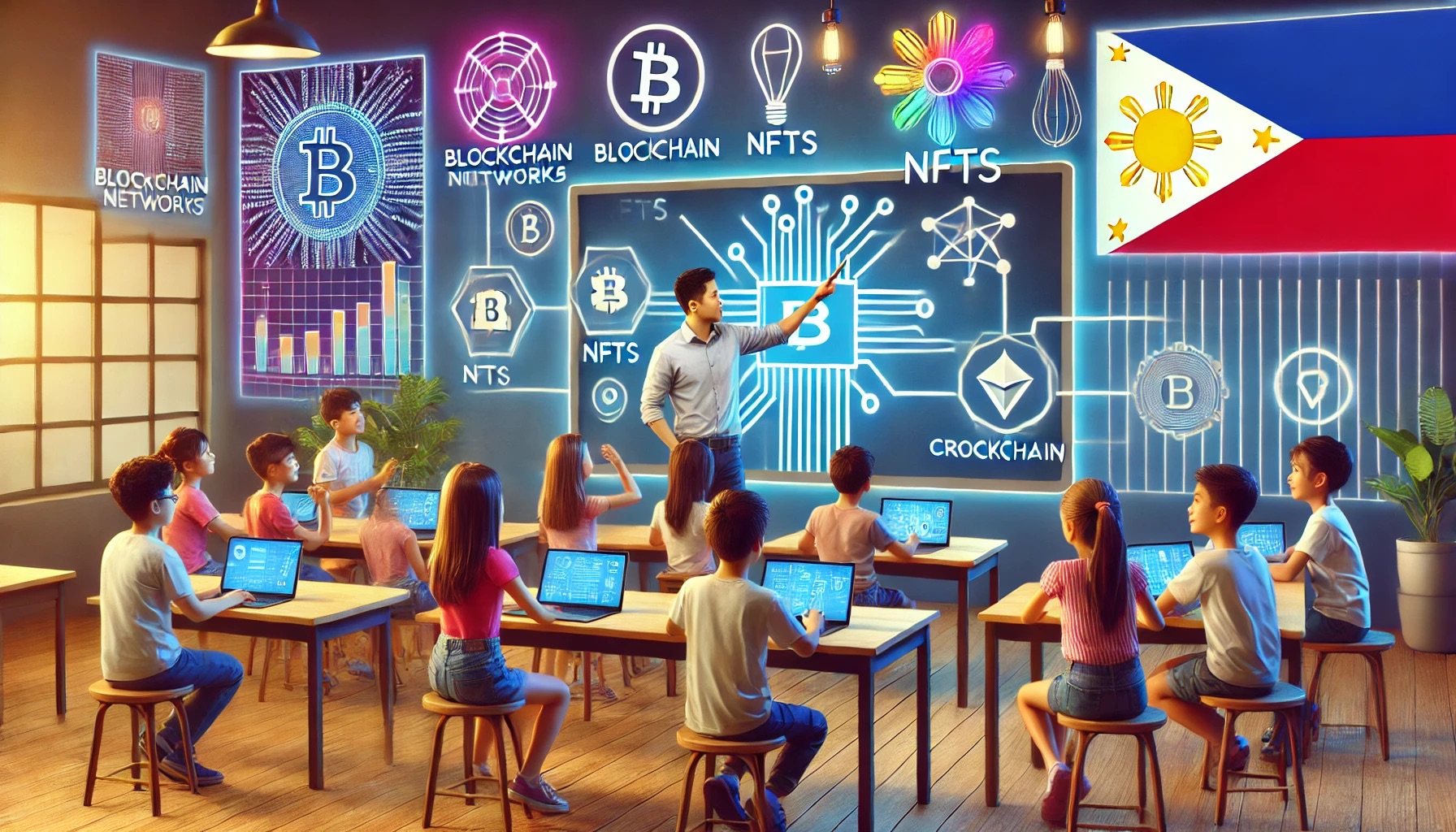
A Philippine government agency dedicated to advancing science and technology research is actively engaging young people in hands-on experiences with cryptocurrencies, blockchain technology, and non-fungible tokens (NFTs). The Department of Science and Technology-Advanced Science and Technology Institute (DOST-ASTI) conducted a tech forum on September 20, aimed at introducing the youth to the transformative potential of blockchain technology.
Exploring Next-Generation Technologies
DOST-ASTI highlighted that next-generation technologies, including artificial intelligence, blockchain, and cybersecurity, are reshaping how public and private institutions operate. By equipping students with knowledge and skills in these areas, the agency aims to prepare them for a future where such technologies are pivotal.
“This forum aimed to ignite young minds with the potential of blockchain, encouraging them to explore science, technology, and innovation as powerful tools to create a better and sustainable future,” the agency explained in a statement.
The forum kicked off with an introduction to the fundamentals of blockchain technology. Roxanne S. Aviñante, a senior science research specialist at DOST-ASTI, emphasized that blockchain is an emerging technology with high job demand.
Students were given insights into how blockchain functions and its applications in various sectors, allowing them to understand its significance in the modern digital landscape.
Marc Jerome T. Tulali, another DOST-ASTI specialist, presented information on NFTs and their real-world use cases. He illustrated how blockchain technology can be utilized in diverse applications, such as:
- Voting Systems: Enhancing transparency and security in electoral processes.
- Immutable Information Storage: Safeguarding critical data against alterations and fraud.
Tulali also shared that the Philippines is in the process of developing a blockchain-based system for managing intellectual property. This initiative, known as Self-Sovereign Identity Empowerment: Reinventing Rights and Attributes (SIERRA), aims to empower individuals with greater control over their intellectual property rights.
Blockchain Across Various Sectors
The students learned about the diverse applications of blockchain technology across various business verticals, including:
- Gaming and Entertainment: Leveraging blockchain for digital assets and ownership.
- Healthcare: Improving data management and patient privacy.
- Government and Public Sector: Enhancing service delivery and transparency.
- Central Bank Digital Currencies (CBDCs): Exploring government-backed digital currencies.
- Decentralized Finance (DeFi): Understanding financial services that operate without central authority.
- Identity Management and Physical Infrastructure: Ensuring secure identity verification and asset tracking.
This exposure not only prepares the youth for a future driven by blockchain technology but also highlights the potential for innovation in the Philippines.
National-Level Exploration of Stablecoins
In addition to fostering knowledge about blockchain, the Philippine government is exploring stablecoins at the federal level. In May, the Bangko Sentral ng Pilipinas (BSP) announced the initiation of controlled trials for a national stablecoin pegged 1:1 to the local peso.
The BSP has partnered with Coins.ph to manage cash reserves in pesos that correspond to the circulating supply of the PHPC stablecoin within a sandbox environment. This sandbox testing is designed to evaluate the real-world performance of the PHPC stablecoin and its impact on the local fiat ecosystem.
“Our goal is to ensure PHPC enhances digital asset trading and improves remittances—a sector where the Philippines ranks fourth globally in inflows,” said Wei Zhou, CEO of Coins.ph, in an interview with Cointelegraph. The introduction of a national stablecoin aims to facilitate digital transactions while supporting the growing demand for cryptocurrencies.
The DOST-ASTI forum is a significant step toward fostering a culture of innovation and technology among the youth in the Philippines. By engaging students in blockchain and NFT education, the agency not only prepares them for future career opportunities but also aligns with national efforts to explore new financial technologies.
- Job Opportunities: With blockchain technology on the rise, students can look forward to various career paths in tech-driven industries.
- Economic Growth: The promotion of blockchain can enhance economic activities and financial inclusivity in the country.
As the Philippines navigates the rapidly evolving landscape of blockchain and cryptocurrencies, initiatives like the DOST-ASTI forum play a crucial role in shaping a tech-savvy generation. By equipping youth with the skills and knowledge needed for a digital future, the country is positioning itself as a forward-thinking participant in the global tech ecosystem.
| Key Highlights | Details |
|---|---|
| Agency | Department of Science and Technology-Advanced Science and Technology Institute (DOST-ASTI) |
| Date of Forum | September 20 |
| Topics Covered | Blockchain technology, NFTs, stablecoins |
| Key Specialists | Roxanne S. Aviñante, Marc Jerome T. Tulali |
| Blockchain Applications | Voting, information storage, intellectual property management |
| National Stablecoin | PHPC pegged to the peso |
| Partner for Stablecoin Trials | Coins.ph |
By fostering an understanding of blockchain and its applications, the Philippines is paving the way for a more innovative and technologically adept future.
Featured image credit: DALL-E by ChatGPT
Follow us for more breaking news on DMR
